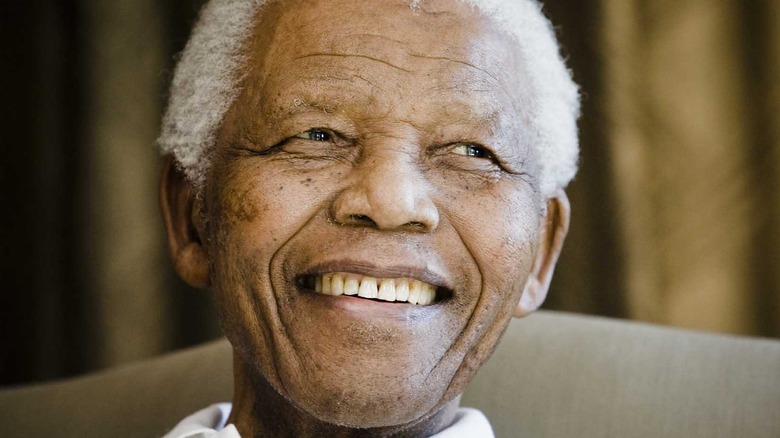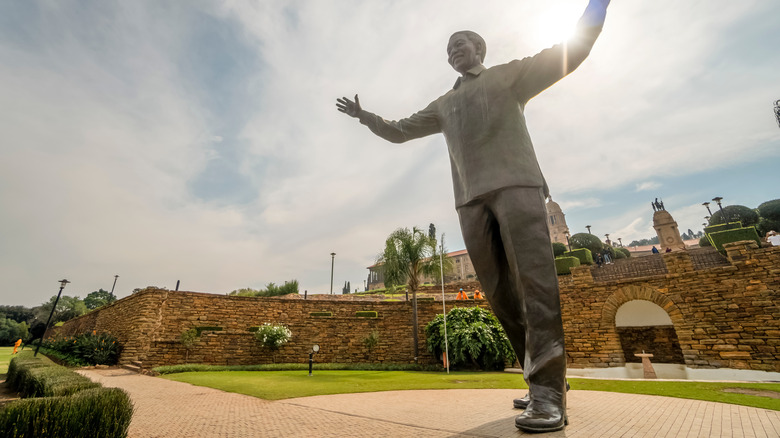What Really Happened After Nelson Mandela Died?
As Biography states, Nelson Mandela committed his life to fighting against the South African apartheid system and everything it stood for. At age 12, he had been adopted by the Thembu acting leader Chief Jongintaba Dalindyebo after his father's death from lung disease. He became disillusioned with his lot at the age of 16, during a ritual to celebrate young men's transition from boyhood to adulthood. In the midst of proceedings, Chief Meligqili spoke of the racial segregation of the country, and Mandela was inspired to begin a quest for equality that would continue after his death.
Throughout his life, Mandela was sent to jail several times for opposing the apartheid system. The most high-profile instance was the Rivonia Trial of 1963-1964, per South African History Online. He was him sentenced to life imprisonment alongside the rest of the leaders of the Umkhonto we Sizwe, "Spear of the Nation,'"which sought more violent opposition to government policies.
He was released in 1990, won the Nobel Peace Prize in 1993, and became the country's first democratically elected president the following year, Biography reported. In his later years, he was treated for prostate cancer and a lung infection, ultimately dying on December 5, 2013, at the age of 95.
Nelson Mandela's legacy lives on
After Nelson Mandela's death, the world mourned, but they also celebrated his achievements and his commitment. Announcing his death to the world, South Africa's then-President Jacob Zuma said, per BBC News, "Our nation has lost its greatest son," exhorting his people to "reaffirm [Mandela's] vision of a society in which none is exploited, oppressed, or dispossessed ... build a united non-racial, non-sexist, democratic and prosperous South Africa."
Zuma's appearance at the memorial service was marred by some booing, per the Los Angeles Times, perhaps displaying a lack of belief that the leader could live up to Mandela's legacy. Nevertheless, the great man continues to influence his beloved nation from beyond the grave. As political analyst Dale McKinley told Al Jazeera in 2020, "The political change the country has witnessed ... is unprecedented ... gone are the days where people were arrested for expressing their political views." Further, Al Jazeera went on, since Mandela was first elected president, every democratic election in the country has been won by the African National Congress, the party of which he was a member.
There is still work to be done, as there is around the world, but with the influence of more people like Nelson Mandela, it just might be finished someday. As a symbol of this, Nelson Mandela Day, according to the event's official website, continues to be celebrated on his birthday, July 18, every year. It inspires a new generation.

